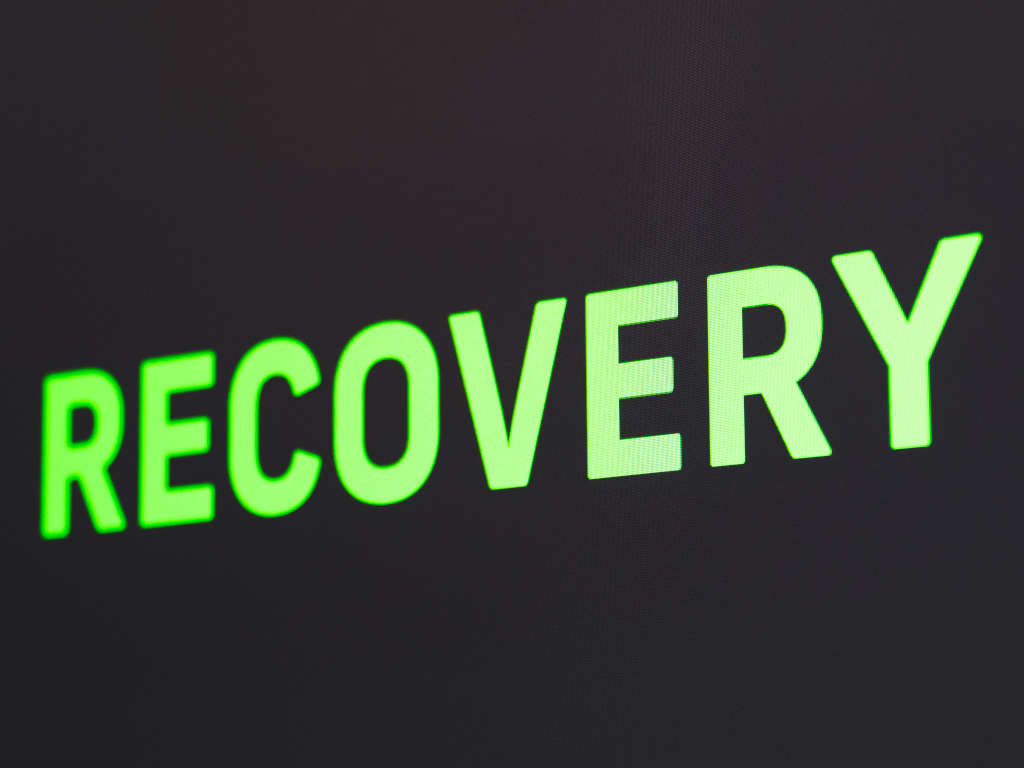Drug Addiction
Ready to Take the Next Step?
We are Ready to Help, Call Now!
Turning Point of Tampa has helped thousands find recovery. As an in-network facility, we are able and committed to helping you find the life you deserve.
Drug Addiction
Drug addiction is a disease that affects the brain. Drug addiction also affects behavior. When drug addiction is present, a person loses their ability to control the ramifications of using a legal or illegal drug. Drug addiction can occur from the use of medication that is prescribed or over the counter medication. Substances such as alcohol, opiates, and benzodiazepines are drugs that can become addictive.
Addiction Medicine and Drug Addiction
Addiction medicine is a specialty for doctors. Learning the ins and outs of medications and deciphering how to provide medical advice based on the individual needs of each person, requires this specialized training and medical education. Substance use disorder and opioid use disorder are two examples of a diagnosis used for someone addicted to drugs. One can become addicted to many types of drugs or alcohol including prescription drugs (pharmaceutical drugs), street drugs like crack cocaine or other illicit substances. Drug abuse or misuse of drugs may cause a physical dependence to the drug. Understanding drug use and how drugs affect the mind and body are important. It is up to each individual to know the risks involved. Prescription medications used for pain relief will not always turn into drug abuse or addiction. When you have a substance use disorder, it may get to the point where your ability to function in day-to-day life becomes impaired.
What is Drug Addiction?
Drug addiction is a chronic, progressive disease. With the right intervention this disease is treatable. Although a person might meet the requirements for a diagnosis pertaining to their drug abuse or drug addiction, successful change occurs when the person using wants to change their life. Drug addiction and sometime drug abuse is a compulsive need for and use of a drug which is characterized by tolerance and by well-defined physiological symptoms upon withdrawal.

For a person addicted, taking drugs seems almost easier than seeking out how to stop using. Most addicts do not like the word addict, and although needing to stop is in their best interest to arrest their disease, control of when, where, and how to stop can become a battle. The physical detoxification process and withdrawal symptoms can be scary. Illicit drugs and alcohol have protocols that are followed based on the amount and frequency of use. Once the detoxification is handled, it is suggested to gain additional drug addiction treatment in a safe place.
Learning to live and be productive without drugs takes time. A comprehensive treatment program is ideal to address the psychological and mental health issues associated with addiction. There are times when medication assisted treatment can be beneficial.
Drug Addiction Statistics
According to SAMHSA’s National Survey on Drug Use and Health, 22.5 million people (8.5 percent of the U.S. population) aged 12 or older needed treatment for an illicit drug or alcohol use problem in 2014. Only 4.2 million (18.5 percent of those who needed treatment) received any substance abuse treatment in the same year. Of these, about 2.6 million people received treatment at specialty treatment programs (CBHSQ, 2015). The evidence is obvious that this is a major problem within our society, no matter what definition of drugs or addiction you may subscribe too.
The National Institute on Drug Abuse (NIDA) has a trends and statistics section where they show opioid data by each state. The National Institute on Drug Abuse offers many publications that are available for print. These National Institute on Drug Abuse publications are a wealth of information and are free to the consumer.
Areas of Impact
Drug addiction is a brain disease that can also cause damage and changes in the brain chemistry. Some areas or functions that can be impacted by drug use include:
Behavior
People do things when they are using drugs or alcohol that they normally would not do. Drug addiction creates situations where addicts will behave in any way needed to keep their addiction alive.
To stop the behavior, some sort of intervention usually occurs. The intervention can be from the consequences of their use such as legal troubles. Family issues can arise. Job or lack of holding a job can become an issue.
Formal Intervention
Formal Intervention from an interventionist could be helpful. Although interventions are not free, finding an interventionist is rather easy.
There are also books outlining how to succeed in an intervention if a family wants to try themselves.
Memory
At times, loss of memory is caused by blackouts where the brain is so impacted that you forget what they you done and what others did. When you use drugs for a long time, it can cause changes in other brain chemical systems and circuits as well. Regardless of the cause, addicts will report that there is significant impact on their memory from the use of drugs.
Decision Making
It is impossible to make good life decisions while under the influence of alcohol or drugs. The consequences of addiction start to mount as the addict makes bad life choices in their addiction.
Stress
Living an addicted life is stressful, and in the throes of addiction that stress becomes another reason to use once again. Since the addict cannot tolerate or cope with life on life’s terms, they need the relief of the drug to feel better, or even normal enough to move throughout their day.
So why do our loved ones use drugs? The reality is, no one wakes up one day and decides they want to be a drug addict. The reasons are as varied as the kind of drugs used.
Veterans Addiction Assistance
Treatment for Veterans & Active Duty Service Members

Preferred Provider of The Community Care Network
What is Drug Dependence or Drug Abuse?
If you use a drug or alcohol frequently, your body will begin to develop alcoholism and drug dependence. This means that your body will “need” the drug to function normally. Drugs affect everyone in a different way, depending on how much you took or the prescribed dose.
If you take the drug or alcohol away and quit abruptly withdrawal symptoms can occur. This is often why there is continued use the drug, to avoid these withdrawal symptoms.
Most Commonly Abused Drugs
There are some drugs that are more addictive than others. Below are the most common drugs that may result in substance use disorders:
- Alcohol
- Club Drugs
- Cocaine
- Fentanyl
- Hallucinogens
- Heroin
- Inhalants
- Kratom
- Marijuana
- MDMA (Ecstasy/Molly)
- Methamphetamine
- Opioids
- Over-the-Counter Medicines
- Prescription Medicines
- Steroids (Anabolic)
- Synthetic Cannabinoids (K2/Spice)
- Synthetic Cathinones (Bath Salts)
- Tobacco/Nicotine and Vaping

Prescription Medications
Unlike illicit drugs, prescription drugs are given by a doctor, to treat certain medical conditions or used for pain relief. Despite being prescribed, medications like this can still become addictive.
Alcohol
People who abuse alcohol are not necessarily addicted but may develop a physical dependence. Alcohol abuse is different than alcohol addiction.
You can suffer from alcohol abuse but not be addicted to it. Alcohol addiction is a chronic disease that makes it so you are not able to stop drinking and need the help of a medical provider to stop.
Illegal Substances
Cocaine / Crack Cocaine is a central nervous system stimulant. The energizing, euphoric, effects are not only highly addictive but seductive. Because of the way it feels when you use these drugs, it can result in addiction and warrant addiction treatment.
Drug and Alcohol Withdrawal
If you are addicted to a substance or suffer from drug abuse, you may experience withdrawal symptoms when you quit using the drug or alcohol. The withdrawal process will look different for each person.
Why Do People Use Drugs or Alcohol?
Here are some of the reasons for drug use:
To Relieve Stress:
Relying on drugs to reduce life stressors. Drugs produce feelings of pleasure. However, frequent use can also build a tolerance that requires you to use more to produce the same initial effect.
To Feel Good:
Using drugs can provide some people with a break from reality. It offers a sense of relief from underlying issues your mind may be trying to escape from. However, continual drug use can lead to a serious problem.
To Cope with Stress:
Losing someone you love can take a toll on you emotionally, physically, and mentally. Drugs can ease the grief you are feeling and are used to get through difficult times. Even if drugs are used temporarily, they can spiral into a serious problem.
To Overcome Anxiety:
Some people are naturally anxious, causing them to perpetually worry. Although initially drugs may help with anxiety, it has been shown that prolonged use can actually induce more anxiety. Over time, this can lead to even more increased addictive behaviors.
Veterans Addiction Assistance
Treatment for Veterans & Active Duty Service Members

Preferred Provider of The Community Care Network
Diagnostic Criteria for a Substance Use Disorder
The American Psychiatric Association (APA) publishes the Diagnostic and Statistical Manual of Mental Disorders (DSM–5). This book is the product of more than 10 years of effort by hundreds of international experts in all aspects of mental health.
According to the American Psychiatric Association (APA) “Substance use disorder (SUD) is a complex condition in which there is uncontrolled use of a substance despite harmful consequences. People with SUD have an intense focus on using a certain substance(s) such as alcohol, tobacco, or illicit drugs, to the point where the person’s ability to function in day to day life becomes impaired. People keep using the substance even when they know it is causing or will cause problems. The most severe SUDs are sometimes called addictions.” ***
Warning Signs
According to the diagnostic and statistical manual (DSM-5) the following are warning signs of a substance use disorder:
- Drugs are often taken in larger amounts or over a longer period than was intended
- Persistent desire or unsuccessful efforts to cut down or control drug use
- A great deal of time is spent in activities necessary to obtain drugs, use drugs and recover from drug use and its effects
- Intense cravings or a strong desire or urge to use drugs, in any form
- Intense pleasure from drug use
- Failure to fulfill life obligations (i.e. work, school and family responsibilities)
- Loss of motivation and/or decrease in desire to obtain life goals
- Increased tolerance to drugs, combined with increased usage to feel the initial “high” or same effect once felt
- Withdrawal symptoms once the drug wears off
- Using drugs despite Medical advice that it may be detrimental to physical health and/or exacerbate already existing conditions
- Continual usage even after multiple legal issues as a result of drug use


Risk Factors for Developing a Drug Addiction
There is not one specific factor that determines if someone will develop a substance abuse problem or a drug addiction. Below are some risk factors and warning signs for developing the disease.
Taking a Highly Addictive Drug
There are some drugs such as opioid painkillers, cocaine, or stimulants may be more addictive than other drugs.
Mental Health Disorder
If you have mental disorders such as attention deficit/hyperactivity disorder (ADHD), depression, panic disorder or anxiety you are at an increased risk for developing a drug addiction or substance use disorder.
Family History
Having family members with addiction problems increases the risk for developing an addiction or substance use disorder.
Peer Pressure
Particularly for young people, peer pressure can be a strong factor for drug misuse.
Early Alcohol or Drug Use
Using drugs and alcohol at an early age can cause changes in your brain resulting in an increased likelihood of drug use and addiction.
Lack of Family Involvement
Difficult family situations or lack of a bond with your parents or family members may increase the risk of drug addiction or a substance use disorder. Lack of parental supervision can also increase the chances of developing an addiction.
Drug Addiction and Mental Health Disorders
Often, a drug addiction or substance use disorders coincide with another mental disorder. From the National Institute on Drug Abuse, “Many people who are addicted to drugs are also diagnosed with other mental disorders, including anxiety and depression. Some people develop mental health problems related to their compulsive drug use, and some people take drugs in an attempt to alleviate symptoms of their mental health disorder.”
When a person is struggling with both a mental illness and a substance use disorder, it can be difficult to identify and treat the issues of each.
Treatment approaches tailored to each patient’s drug use patterns and any co-occurring medical, mental, and social problems can lead to continued recovery. As with other chronic diseases, there is no “cure” for a substance use disorder.
Drug addiction and mental health disorders much like diabetes and asthma are conditions we have seen individuals learn to live with and experience productive lives. Learning to live without using drugs or alcohol takes time, practice, and a commitment to new coping mechanisms.
Drug Addiction Treatment at Turning Point of Tampa
Turning Point of Tampa is a drug addiction treatment center. We recognize drug addiction as an ever-increasing problem within this country. We also believe treatment based on the 12-Step philosophy leads a person to a life that is productive and meaningful.
Whether you or a loved one are suffering from addiction, we can help. Legal substances or a prescribed medication can be abused (Amphetamines/Stimulants, Barbiturates, Benzodiazepines, Opioids). Illegal drugs (Marijuana, Cocaine, Ecstasy, Heroin, Spice and Methamphetamine) or more recently the new “designer drugs” (Spice, Bath Salts, Kratom) have been on the rise in our country for the last several years and pose a serious problem.

Turning Point of Tampa has recognized drug addiction as a serious and treatable disease, and we can help you or the person struggling. If left untreated, a substance use disorder can lead to harmful consequences. Reach out to us about our addiction treatment services for a substance abuse disorder.
If you feel that you or someone you care about has a problem with drugs, please call us at (813) 680-2037 or email us at admissions@tpoftampa.com.
Levels of Care
At Turning Point of Tampa we offer a comprehensive continuum of care, including primary and extended care programs, intensive outpatient and weekly aftercare groups.

